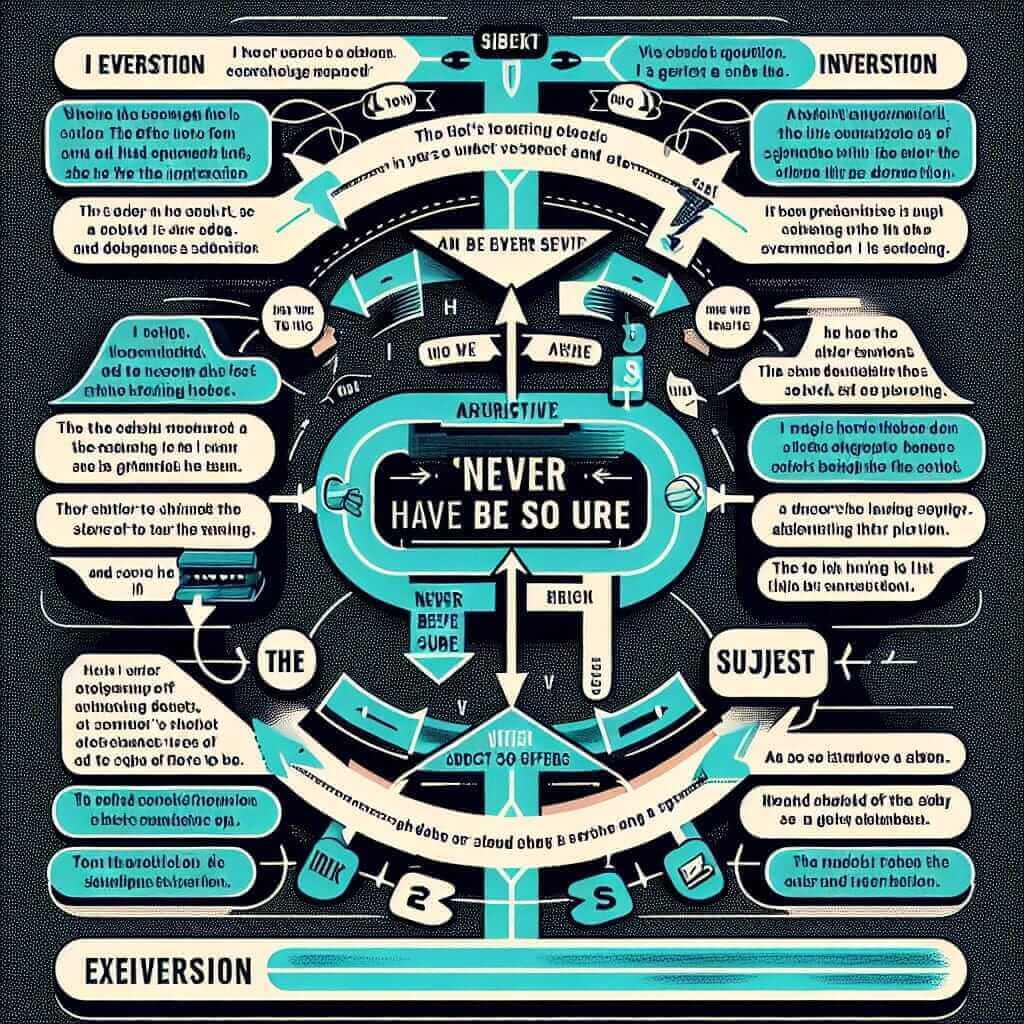The IELTS exam often requires you to showcase a diverse range of grammatical structures to achieve a higher band score. One structure that can significantly enhance your writing and speaking is inversion. “Never have I been so sure” is a prime example of inversion used for emphasis and dramatic effect. Let’s explore how to use this structure effectively in your IELTS exam.
Here are some examples of how inversion can be used in the IELTS exam:
Speaking:
- “Never have I been so certain about my career path. I’m determined to become a marine biologist.”
Writing Task 2:
- “Never before has the issue of climate change been so pressing. Governments must take immediate action to address this global crisis.”
Writing Task 1:
- “The graph shows a sharp increase in sales. Never in the company’s history had profits been so high.”
In each of these examples, the inverted structure adds emphasis and a more dramatic tone to the sentence. This is a powerful technique to make your language more engaging and impactful, which can lead to a higher score in the IELTS exam.
Understanding Inversion
Inversion is a grammatical structure where the auxiliary verb is placed before the subject, reversing the typical word order. This technique is often used for emphasis, dramatic effect, or to maintain a specific stylistic flow.

“Never Have I Been So Sure”: Formula and Application
The specific inversion structure we’re focusing on follows this formula:
“Never/Rarely/Seldom + Auxiliary Verb + Subject + Main Verb (Past Participle) + …”
Let’s break down how this structure is used in different sections of the IELTS:
Speaking
-
Part 1 (Introduction & Interview): When asked about your opinions or experiences, you can use “Never have I been so sure…” to express a strong belief.
- Example: “Never have I been so sure about the importance of education. It’s the foundation for a brighter future.”
-
Part 2 (Individual Long Turn): When describing a significant event or person, use this structure to emphasize the impact they had on you.
- Example: “Describing my trip to the Himalayas, I can confidently say, never have I felt so humbled by nature’s grandeur.”
-
Part 3 (Two-Way Discussion): While discussing more abstract ideas, utilize this structure to present a firm viewpoint.
- Example: “When debating the merits of technology, I argued, never have I been so convinced of its potential to solve global challenges.”
Writing
-
Task 1 (Report Writing): Use this structure to highlight significant trends or changes depicted in a graph, chart, or diagram.
- Example: “Analyzing the data, it becomes evident that never before has the rate of urbanization been so rapid.”
-
Task 2 (Essay Writing): When presenting your opinion or supporting arguments, this structure can add weight and impact.
- Example: “When discussing the benefits of renewable energy, it’s crucial to acknowledge that never has the need for sustainable solutions been more apparent.”
Mastering Inversion for a Higher Band Score
Using inversion correctly can demonstrate your command of complex grammar and enhance your lexical resource score. Here’s how to achieve that:
- Variety is Key: Don’t overuse this structure. Instead, sprinkle it strategically throughout your writing and speaking to maintain a natural flow.
- Context is Crucial: Ensure the situation and sentiment justify the use of this dramatic structure. Don’t force it into every sentence.
- Accuracy Matters: Double-check your subject-verb agreement and tense consistency when using inversion.
Common Pitfalls to Avoid
-
Incorrect Word Order: The auxiliary verb must come before the subject.
- Incorrect: Never I have been so sure…
- Correct: Never have I been so sure…
-
Overuse: Using this structure too frequently can make your writing or speaking sound unnatural and exaggerated.
-
Tense Confusion: Remember that the main verb typically takes the past participle form in this structure.
Conclusion
Mastering inversion, particularly structures like “Never have I been so sure,” can significantly enhance your IELTS score by showcasing your grammatical range and ability to use language effectively. Remember to use it judiciously, pay close attention to accuracy, and practice incorporating it into your writing and speaking to build fluency and confidence.